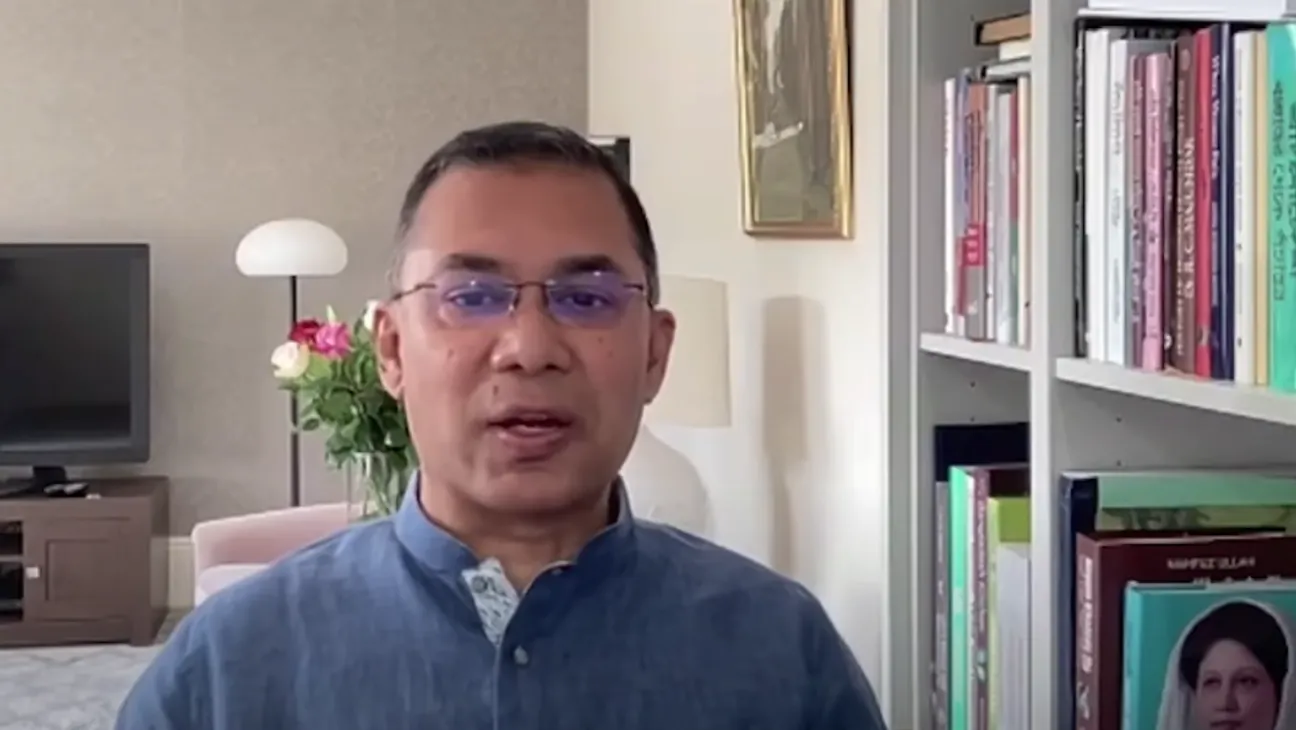Tarique Rahman says he’s ready for change.
In a virtual address on Friday, the Bangladesh Nationalist Party (BNP) acting chairman pledged to build Bangladesh into a democratic welfare state if his party wins the next national election.
The comment came during a meeting with BNP’s allied political groups at the party chairperson’s office in Gulshan.
“Fascism has been defeated in the uprising of students, workers and the public in July, following a long path of movement and struggle,” he said. “Everyone must move forward unitedly.”
It was a calculated message. This was not just an address to party loyalists, the audience in attendance consisted of leaders from the 12-party alliance, Jatiyatabadi Somomona Jote, the Liberal Democratic Party (LDP) and the Labor Party.
The BNP Secretary General Mirza Fakhrul Islam Alamgir, senior BNP leaders Nazrul Islam Khan, Selima Rahman, Abdul Awal Mintoo, members from each of the allied groups also attended the two-hour long meeting.
These smaller alliances matter. Not the ones that usually make headlines, but the ones that matter and shape narratives. Mustafa Jamal Haider, the coordinator of the 12-party alliance, and Fariduzzaman Farhad who stood for the Jatiyatabadi Somomona Jote, attended that meeting as well. LDP secretary general Redwan Ahmed and Labor Party chairman Mostafizur Rahman Iran also did so.
BNP is working to consolidate support before the next general election. And meetings like this are more than symbolic — they’re part of an effort to present a united front against the ruling party.
The alliances are a patchwork of ideological groups and former factions:
- The 12-party alliance includes: Jatiya Party (Kazi Jafar), parts of the LDP, Bangladesh National Party, Jamiat Ulama-e-Islam, sections of Jagpa, a segment of the Labor Party, the Kalyan Party, Islami Oikya Jote, Islamic Party, Naya Ganatantrik Party, and Pragatishil Jatiyatabadi Dal.
- The parties in Jatiyatabadi Somomona Jote are : National Peoples Party (NPP), another faction of Jagpa, Democratic League (DL), Bangladesh NAP, Bikalpa Dhara, Communist Party of Bangladesh, Gano Dal, NAP-Bhasani, Islami Oikya Jote, Peoples League, Bangladesh Minority Janata Party.
That is a long list of names, and most voters probably couldn’t keep track. However, every little helps in gaining momentum for Tarique Rahman and BNP.
What’s less clear is how unified these groups really are. Some represent older political families. Others are religious or regional blocs. Still, they share one thing — opposition to the current administration.
Winning the election is another story entirely. But with public anger growing and protests grabbing headlines, it looks like BNP is ready to roll the dice and see what happens.
Tarique Rahman’s statement was brief, but it had intent. He framed July’s unrest as a turning point. He framed the future as a choice — more of the same, or something else.
For now, the party remains outside parliament. But it’s moving. And it’s asking voters — and smaller parties — to move with it.









